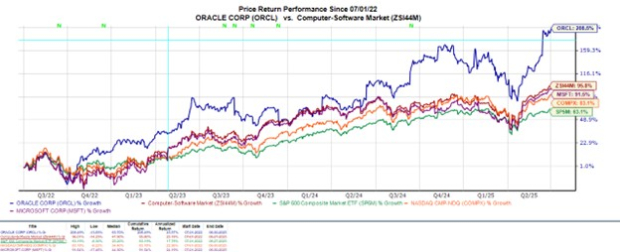In California, the real estate transfer tax is a fee charged when a property changes ownership. The tax is calculated based on the property’s value, with additional fees sometimes applied at the municipal level. Typically, whether sellers pay the transfer tax depends on local practices. In many counties, sellers are expected to cover the fee, while in others, the responsibility may fall on buyers or be open for negotiation. This tax varies by city and county, making it an essential aspect of real estate transactions.
Consult a financial advisor to understand how the California real estate transfer tax impacts your property sale or purchase.
Understanding the California Real Estate Transfer Tax
The California real estate transfer tax is a fee applied when property ownership is transferred. This tax is generally set by the county, with a standard rate of $1.10 for every $1,000 of property value (rounded to the nearest $500).
Distinct from other fees—like recording or property taxes—the transfer tax is based entirely on the property’s total value. In addition to the county rate, some cities have their own specific municipal transfer taxes, which are charged in addition to the county fee. For example, cities such as San Francisco, Los Angeles, and Oakland impose higher or tiered rates based on the property’s sale price. Such local taxes can significantly raise the overall costs involved in transferring property, especially in expensive markets.
The revenue from these taxes typically supports public services and infrastructure, making them an important revenue source for local governments. However, the application of transfer taxes and any potential exemptions—for instance, for certain family transfers or foreclosures—can differ widely based on the city and county. This complex tax structure underscores the importance of understanding local regulations in California’s real estate landscape.
Who Typically Pays the Transfer Tax in California?

Sellers typically pay the transfer tax in California, but local customs and terms negotiated in purchase agreements can influence this norm. Commonly, sellers are expected to address the county transfer tax as part of their closing costs.
If a city has a separate municipal transfer tax, sellers often take on this cost unless an agreement states otherwise. In competitive markets, buyers might offer to pay the transfer tax to make their offer more attractive. Conversely, in slower markets, sellers may seek to negotiate with buyers about taking on that expense.
Exemptions can also affect who pays the tax. Transfers that involve gifts, certain family transactions, or foreclosures may qualify for partial or complete exemptions.
Commercial transactions can have different terms, especially for high-value properties in cities like Los Angeles or San Francisco. Therefore, understanding local customs and reviewing purchase agreements carefully is crucial to determining tax responsibilities.
Which Cities in California Charge Transfer Taxes?
In California, transfer taxes can accumulate rapidly when both county and city taxes come into play. Most cities that impose a separate transfer tax have a flat rate, but larger municipalities like San Francisco and Los Angeles use tiered systems, applying higher rates to more expensive properties.
Every county charges a transfer tax of $1.10 per $1,000 of property value. However, several cities implement additional transfer taxes:
| County | Cities With a Separate Transfer Tax (per $1,000 of property value) |
| Alameda County | Alameda: $12Albany: $15Berkeley: $10 – $25Emeryville: $12 – $25Hayward: $8.50Oakland: $10 – $17.50Piedmont: $13San Leandro: $11 |
| Contra Costa County | El Cerrito: $12Richmond: $7 – $30 |
| Los Angeles County | Culver: $4.50 – $40Los Angeles: $4.50 – $59.50Pomona: $2.20Redondo Beach: $2.20Santa Monica: $3 – $56 |
| Marin County | San Rafael: $2 |
| Riverside County | Riverside: $1.10 |
| Sacramento County | Sacramento: $2.75 |
| San Francisco | San Francisco: $2.50 – $27.50 |
| San Mateo | San Mateo: $1.10 |
| Santa Clara County | Santa Clara: 0.55 per $500.00 (computed on equity or full value of transfer)San Jose, Mountain View, and Palo Alto: $1.65 per $500.00 (computed on full value) |
| Solano County | Solano County: $.55 for each $500City of Vallejo: $1.65 per $500 |
| Sonoma County | Petaluma: $2Santa Rosa: $2 |
Due to the complex structure of these taxes and the presence of potential exemptions, it’s important for both buyers and sellers to carefully investigate local requirements and negotiate payment terms to avoid unforeseen financial surprises.
Key Takeaway

The transfer tax system in California is multifaceted, with both county and city taxes affecting property transaction expenses. While it is customary for sellers to pay, local traditions, market dynamics, and specific city regulations can sometimes place the burden on buyers or result in shared costs. Many cities impose either flat rates or tiered systems, which can lead to increased expenses for more valuable properties.
Tips for Real Estate Investment
- A financial advisor can assist you in assessing real estate investments and managing risks in your portfolio. Finding a financial advisor can be straightforward; SmartAsset’s free tool connects you with vetted advisors in your area, and you can have a complimentary introductory call to select the right fit for your financial needs.
- If you’re curious about potential taxes for the sale of an investment, SmartAsset’s capital gains calculator can provide you with an estimate.
Photo credit: ©iStock.com/Milan_Jovic, ©iStock.com/Prostock-Studio, ©iStock.com/stockbusters
The post Guide to the California Real Estate Transfer Tax appeared first on SmartReads by SmartAsset.
The views and opinions expressed herein are those of the author and do not necessarily reflect those of Nasdaq, Inc.







